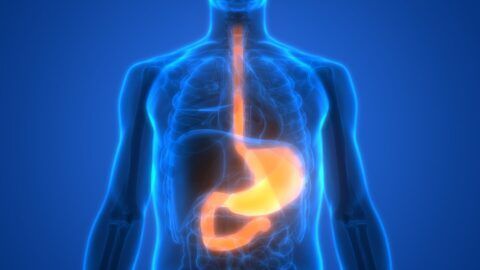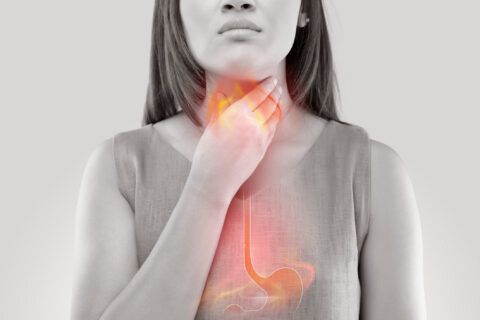Understanding Gastrointestinal Health: Tips for a Healthy Digestive System
A well-functioning digestive system is crucial for overall health, influencing everything from nutrient absorption to immune defense. The gastrointestinal (GI) tract is a sophisticated network of organs collaborating to break down food, absorb essential nutrients, and eliminate waste. In this blog, we will explore the significance of a healthy digestive system and offer practical tips to maintain it through diet, exercise, and regular screenings.
The Importance of a Healthy Digestive System
The digestive system plays a crucial role in our health by:
- Nutrient Absorption: The GI tract processes food into nutrients, which are then absorbed into the bloodstream to nourish the body. Efficient digestion ensures the body can effectively utilize the nutrients we consume.
- Immune Function: A significant portion of the immune system is located in the gut. A healthy digestive system helps protect against infections and diseases by maintaining a balance of beneficial bacteria.
- Waste Elimination: The digestive system is responsible for removing waste products from the body. Effective elimination prevents toxin buildup, which can otherwise lead to various health problems.
- The gut-brain axis links the digestive system and the brain. A healthy gut can positively impact mental health, reducing the risk of anxiety and depression.
Tips for Maintaining a Healthy Digestive System
1. Eat a Balanced Diet
Maintaining a balanced diet that includes plenty of fiber, lean proteins, and healthy fats is crucial for digestive health. Here are some tips to help keep your digestive system functioning optimally:
- Increase Fiber Intake: Consuming fiber-rich foods such as fruits, vegetables, whole grains, and legumes helps keep the digestive tract moving smoothly. Fiber adds bulk to the stool, making it easier to pass and preventing constipation.
- Stay Hydrated: Drinking ample water is crucial for digestion. Water aids in breaking down food and absorbing nutrients. It also softens stool, preventing constipation.
- Include Probiotics: Probiotics are beneficial bacteria that promote gut health. To help maintain a healthy balance of gut bacteria, which is essential for proper digestion, include foods such as yogurt in your diet.
- Limit Processed Foods: Processed foods often contain unhealthy fats, sugars, and additives that can disrupt the digestive system. Whenever possible, choose whole, unprocessed foods to promote digestive health.
2. Exercise Regularly
Regular physical activity is beneficial for digestive health in several ways:
- Enhances Gut Motility: Exercise activates the muscles in the digestive tract, encouraging regular bowel movements and lowering the risk of constipation.
- Reduces Stress: Physical activity helps alleviate stress and anxiety, which can negatively impact digestive health. Lower stress levels can prevent conditions like irritable bowel syndrome (IBS) and lessen the symptoms of other digestive disorders.
- Maintaining Healthy Weight: Regular exercise supports a healthy weight, which can help prevent and manage conditions such as acid reflux and gallstones that are often associated with obesity.
3. Manage Stress
Stress can significantly affect the digestive system. Implementing stress management techniques can help maintain digestive health:
- Practice Mindfulness and Relaxation Techniques: Practices like yoga, meditation, and breathing exercises can effectively reduce stress levels.
- Ensure Adequate Sleep: Poor sleep can disrupt the digestive system. Aim for 7-9 hours of quality sleep per night to support overall health, including digestion.
4. Avoid Bad Habits
Certain lifestyle habits can negatively impact digestive health. Avoid the following:
- Smoking: Smoking can weaken the lower esophageal sphincter, resulting in acid reflux and other digestive problems.
- Excessive Alcohol Consumption: Alcohol can irritate the digestive tract and disturb the balance of gut bacteria. Limit alcohol intake to maintain a healthy digestive system.
- Overuse of Antibiotics: While antibiotics are necessary for treating bacterial infections, overuse can harm the beneficial bacteria in the gut. Use antibiotics only when prescribed by a healthcare provider.
5. Regular Screenings and Check-Ups
Regular screenings and check-ups are essential for maintaining digestive health. Early detection of digestive issues can prevent complications and improve outcomes:
- Colonoscopy: A colonoscopy is recommended for individuals aged 50 and above to screen for colorectal cancer. Those with a family history or other risk factors may need to start screenings earlier.
- Endoscopy: An upper endoscopy can help diagnose issues like acid reflux, ulcers, and other upper GI tract problems.
- Stool Tests: Stool tests can detect infections, inflammation, and other abnormalities in the digestive system.
6. Listen to Your Body
Paying attention to your body’s signals can help you identify potential digestive issues early. Common symptoms to watch for include:
- Persistent Abdominal Pain: Continuous or severe abdominal pain should be evaluated by a healthcare provider.
- Changes in Bowel Habits: Sudden changes in bowel habits, such as diarrhea, constipation, or blood in the stool, should not be ignored.
- Unexplained Weight Loss: Unexpected weight loss can be a sign of a serious digestive issue and should be investigated.
Conclusion
Maintaining a healthy digestive system is essential for overall well-being. You can support your digestive health and prevent potential issues by following a balanced diet, exercising regularly, managing stress, avoiding harmful habits, and undergoing regular screenings. If you experience persistent digestive symptoms, consult a healthcare provider for proper evaluation and treatment. For more information on gastrointestinal health and services, visit Houston Gastro Institute.









